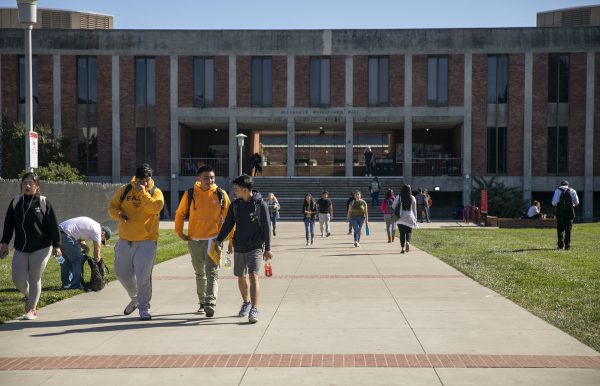STEM field leads employment rates for graduates
June 10, 2015
The unemployment rate in California is higher than the country average according to a 2014 Labor Market Information report by the State of California Employment Development Department.
In the United States 5.4 percent of the population is unemployed, however, in California that number is 6.3 percent, which means 1,199,100 of the state’s 18,953,700 workers in the labor force are out of work.
For CSU and UC graduates the rates aren’t much better. According to a poll from earlier this year conducted by Gallup, the unemployment rate for California college graduates is nearly seven times the national average in the United States at just under 45 percent.
“I didn’t think it would be this hard to find a job with a degree,” San Francisco State graduate Raul Nieves said. “I should have listened to my mom and majored in the medical field.”
Nieves graduated with a Bachelor of Arts degree in Psychology and has been unemployed for nearly a year, since he graduated from SFSU last year. The Science, Technology, Engineering and Math, or STEM, fields have seen the opposite effect and all have seen their employment statistics rise recently.
CSUEB graduates report above average levels of satisfaction with their earnings, placing themselves 56 percent above the national average.
— CSUEB Continuing Education Department
According to the United States Department of Labor’s Bureau of Statistics, “In May 2015 healthcare added 47,000 jobs from April. Within the industry, employment in ambulatory care services (which includes home health care services and outpatient care centers) rose by 28,000 and hospitals added 16,000 jobs over the month. Over the past year, health care has added 408,000 jobs.”
The survey also showed that several areas of study were traditionally low in employment rates for recent college graduates. According to the survey, Psychology and Sociology majors who graduated with a bachelor’s degree are employed in their field of study at just 2.8 percent. A master’s degree or secondary education degree in the graduates field of study increased the employment number to 3.5 percent.
The CSUEB Continuing Education Department conducted a survey of CSUEB alumni and found that students who enroll in continuing education after obtaining a bachelor’s degree have nearly a 100 percent employment rate. “Ninety-six percent of secondary education graduates are currently employed or continuing their education,” according to the CSUEB Continuing Education Department’s website.
The department also found, “CSUEB graduates report above average levels of satisfaction with their earnings, placing themselves 56 percent above the national average.” The survey also revealed that 83 percent of graduates received a promotion, salary increase or additional job responsibilities at their employer following their experience at CSUEB.
In 2013 the Federal Reserve Bank of New York conducted their own survey on college graduates, which produced some interesting statistics. They used data from the Census Bureau and the Bureau of Labor Statistics to conclude, “in 2012, about 44 percent of grads were working in jobs that didn’t require a college degree.” The study also found that about 23 percent of underemployed recent graduates were working at least part-time in 2011-2012.
Despite the seemingly low numbers, the FRBNY report discovered that college graduate workers generally make more money than non-college graduate workers. “Workers with at least a bachelor’s degree had median annual earnings of $45,500, well over the medians for people with only some college, $30,000, or a high-school diploma, $28,000,” according to the most recent report.
Many of the students surveyed in these studies and at the CSUEB Hayward campus feel that despite what the statistics say college is worth it. CSUEB senior Meghan Ferris is confident that her degree in environmental studies will help secure her a better job after graduation in her major field of study.
“In my field, a master’s degree or some type of graduate school could help land a better job,” Ferris said. “However with a bachelor’s and some great field and real world experience this field can really open up for a recent graduate. Field work with experienced professionals is priceless.”

















